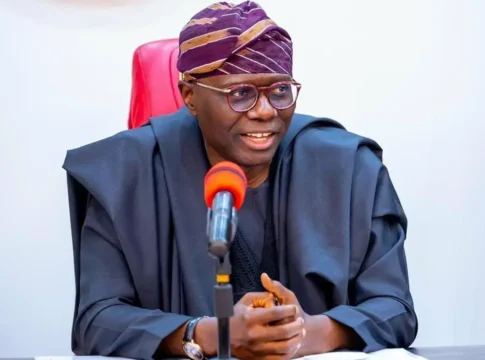Ngozi Okpala
The United States Ambassador to Nigeria, Richard Mills Jr. has reaffirmed the U.S. government’s commitment to working with all stakeholders and communities to achieve and sustain HIV epidemic control; prevention, across the country.
Speaking at the U.S. Centers for Disease Control and Prevention (U.S. CDC) 5th round of stakeholder engagement meetings in Abuja Mills, described Nigeria as model to the rest of the world on how to not only reach HIV epidemic control but also how to invest in people and communities, so they have the tools and skills to change their lives.
The Ambassador therefore, commended those tirelessly working to provide relief to Nigerians living with HIV and emphasised the importance of continued partnership and collaboration.
The U.S. CDC Acting Country Director, Suzanne Theroux, who also spoke at the event which came under theme, “strategic pivoting towards programme simplification and sustainable public health intervention,” highlighted Nigeria’s significant progress achieved through transformative partnerships, policies, and evidence-based public health programming.
READ MORE: Mozambique’s Opposition Rejects Vote Result, Ruling Party Calls For Dialogue
She described the initiative known as ‘getting the data right,’ which focuses on determining the number of people living with HIV who are receiving lifesaving antiretroviral treatment, as a bold effort that not only validates Nigeria’s HIV treatment coverage but also supports the goal of sustainable health outcomes.
Theroux added, “The coordinated response to recent outbreaks of lassa fever, cholera, mpox and other epidemic-prone diseases reflects our collective resilience and resolve to achieve optimal health for all Nigerians.”
She also said t: “Our collaborative efforts are closing the gap for zero-dose children, combatting the incidence of vaccine-preventable diseases, and implementing innovations to eliminate malaria as a public health threat in Nigeria”.
On the first day, participants focused on laying the groundwork for HIV programme simplification, a critical step toward enhancing ownership and sustainability in public health interventions across Nigeria.
Federal and state officials, multilateral agencies, community stakeholders, and implementing partners engaged in dynamic discussions about strategies and progress related to health workforce optimismation and integration.
The second day focuses on reviewing progress of the state-led President’s Emergency Plan for AIDS Relief (PEPFAR) programme and proffering innovative models for health insurance at both national and state levels.
This emphasis on sustainable healthcare solutions is essential in ensuring lasting impacts on Nigeria’s public health landscape.




